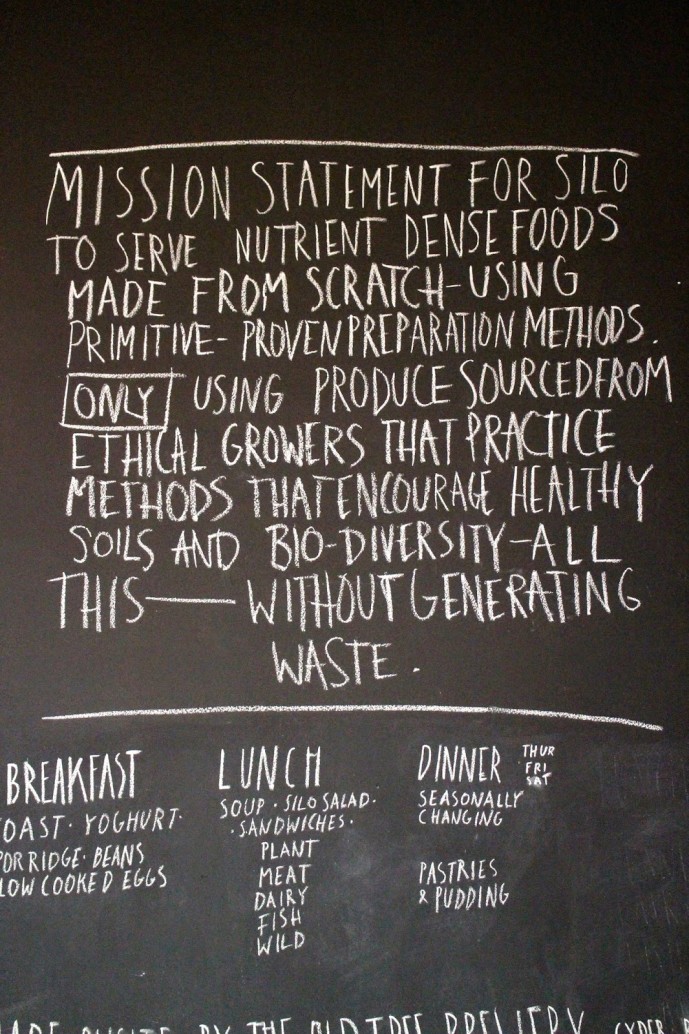
As part of our look at waste around the city, we spoke to Becki of the North Laines based restaurant, Silo.
What inspired Silo?
Silo started in Melbourne at a restaurant called Greenhouse, which had been constructed entirely out of waste materials, such as using melted down bins for the floors. It was the first zero carbon cafe of its kind, and the head chef, Douglas McMaster, decided to set one up when he had moved to Brighton.
Silo is designed from back to front, always with the bin in mind. At Silo we use all reclaimed or upcycled materials, such as old re-purposed floor tiles, or old school tables. The idea is to maximise reuse before recycling.
Food wise, we eliminate waste by choosing to trade directly with farmers or choosing local ingredients that themselves generated no waste.
How do you feel about food waste?
The issues behind food are very broad and on a day-to-day basis, our choices around food have the potential to have a big impact. It’s important that we change the message about food, to be less wasteful, and overall use our resources of food more efficiently.
To minimise food waste we keep a limited and selective menu to accommodate everyone’s requirements. We try to provide quality through purity by adopting a more primitive diet using both modern and ancient culinary techniques.
We also work closely with the Real Junk Food Project, who pass to us intercepted food waste that they receive in bulk. For instance we received 1,500 mangoes recently, which we used to make everything from cakes to smoothies.
We also have an industrial composter that can take everything from coffee cups to bones, it is heated so the process takes place very quickly. So all of our scraps and trimmings turn into compost that is used to produce more food… closing the loop.
What lessons can restaurateurs learn from Silo
The main ambition is to show how achievable it is to reduce waste and support the local economy and local farmers. We work with Fork and Dig It as well as Ashurst Organics. We have shown it is possible to create closed-loop catering and also make it economically viable.
Our food is also very nutritionally dense as we choose food sources that allow ingredients to be themselves without unnecessary processing. For instance we mill our own flour, which keeps in the nutrients, and it is used immediately. We also use ancient grains, and as the mill is live, the bread is far more easily digestible, which lessens the problem of gluten intolerance.
We want to step back, and make a direct connection between farmers and the produce we are making.
